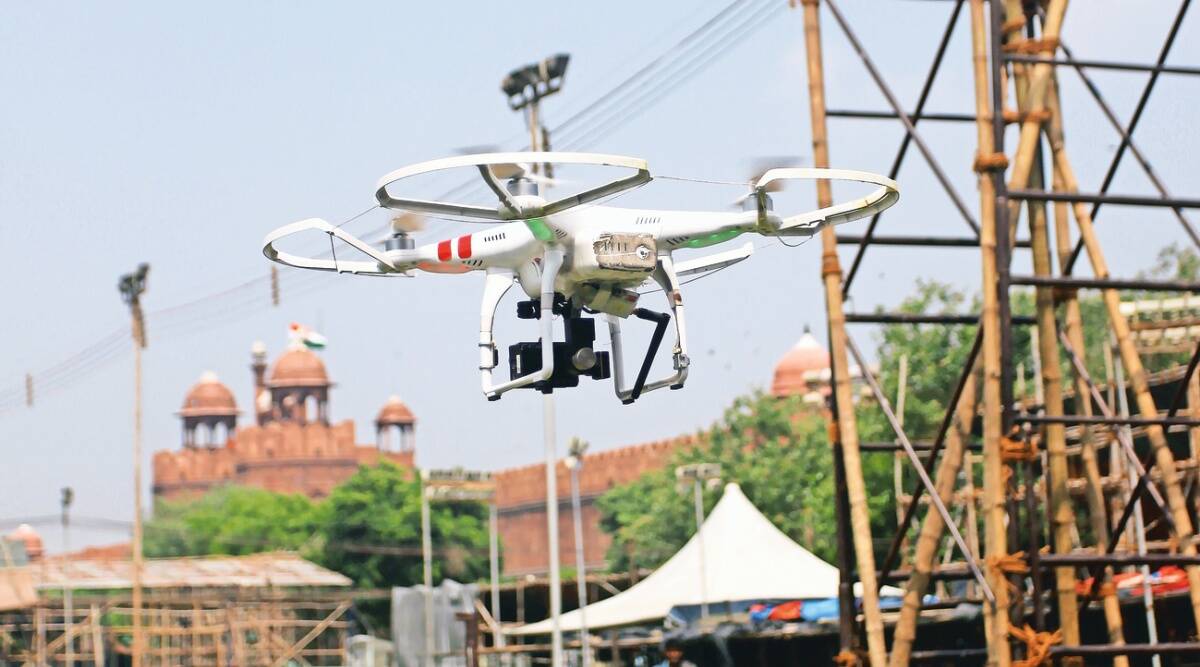The success of a drone trial improves access to healthcare in rural areas.

At 10:44 a.m. on Thursday, a Vertiplane X3 drone took off from the All-India Institute of Medical Sciences (AIIMS) in Rishikesh and flew over 35 km in 30 minutes before landing on the roof of the Baurari District Hospital in Tehri Garhwal.
In Uttarakhand, the drone carried 2 kg of anti-tuberculosis drugs, dropped them off at the district hospital, and flew back to AIIMS by 12:15 pm with tuberculosis samples from patients in Tehri. This was the first test and demonstration of its kind. The demonstration went well, which gave the AIIMS a chance to start the tendering process.
“The test of sending anti-tuberculosis drugs from the AIIMS helipad to the District Hospital in Tehri Garhwal by drone went well. The drone service for this trial was provided by TechEagle Innovations Private Limited, and the National Health Systems Resource Centre gave technical support (NHSRC). In this demonstration, a Vertiplane X3 drone model was used, and 2 kg of medicine was put on it so that it could be taken to the hospital. AIIMS Rishikesh said in a statement that one side of the flight was about 40 km long and took 30 minutes.
By air, the distance between the two hospitals in the demonstration was only about 36 km, but it would be about 75 km by car.
The Project Manager at TechEagle Innovations, Yash Sharma, told The Deccan Era that their company is using state-of-the-art drones to help people in rural and urban areas get access to health care and logistics. The company was started in July 2015 in the garage of an IIT Kanpur hostel. In 2018, it worked with a Lucknow-based food delivery startup to send the first tea by drone.
Sharma said that the Vertiplane X3 is the fastest “made in India” hybrid e-VTOL (electric vertical take-off and landing) drone with a maximum speed of 120 km/h, a range of 100 km, and a payload capacity of 3 kg. This UAV is great for delivering goods for healthcare, defence, maritime, hyperlocal, and e-commerce because it has many fail-safe options and a dynamic design.
The drone has two ways to move: one for moving up and down, and another for moving forward. Sharma said that the company plans to make a model that can carry 25 kg by the end of this year. “India had about a quarter of the world’s TB cases, and getting rid of it is still hard. Getting antituberculosis medicines to people on time is hard because of things like bad transportation networks, hilly terrain, traffic, areas hit by natural disasters, and harsh weather. “On top of that, unplanned delays in getting sputum samples to the lab cause treatment to be put off,” the institute said in a statement.
The statement said that the goal of the current project is to study the long-term viability of the technology and create a model for integrating it into the healthcare system as an addition to existing logistics methods. The model will also suggest ways to make drone-based delivery of medical supplies sustainable in the long run. The project would also figure out how cost-effective it would be to send medicines and sputum samples to the lab in Uttarakhand by drone.



